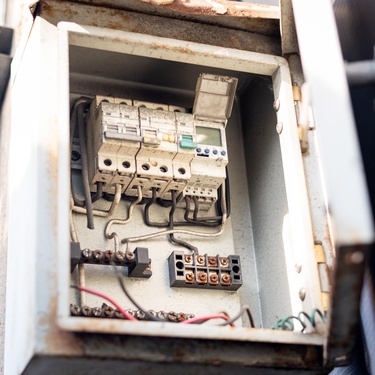
Electrical facilities face numerous operational challenges. Dust accumulation is one of the most underestimated threats to safety and performance. Effective dust collection systems are critical infrastructure that protects both personnel and equipment from potentially catastrophic failures.
Collected dust particles can cause electrical equipment to malfunction or fail entirely. When facilities neglect proper dust management, they expose themselves to significant risks that extend far beyond simple maintenance concerns. Here are some of the reasons why dust collection is an important part of electrical facility operation.
Minimizes Risks of Arc Flashes
Arc flashes represent one of the most dangerous hazards in electrical environments, and dust accumulation significantly increases their likelihood. Conductive dust particles like carbon or metal filings create unintended pathways for electrical current, leading to sudden energy releases that can cause severe injuries or fatalities.
Proper dust collection systems remove these particles before they can settle on electrical components. Clean environments reduce the probability of arc flash incidents by eliminating one of their primary contributing factors.
Prevents Unnecessary Equipment Damage
Electrical equipment operates within specific environmental parameters, and dust contamination disrupts these conditions. Fine particles infiltrate control panels, switchgear, and other sensitive components, causing premature wear and unexpected failures.
Dust collection systems protect expensive electrical infrastructure by maintaining clean operating conditions. This protection extends your equipment’s lifespan and reduces replacement costs that would otherwise strain facility budgets.
Maintains Operational Efficiency
Dust buildup on electrical components creates insulation that impedes heat dissipation and increases operating temperatures. Elevated temperatures force equipment to work harder, consuming more energy and reducing overall system efficiency. Some equipment will shut down automatically when it experiences overheating, halting your work and efficiency.
Effective dust management maintains optimal operating conditions that allow electrical systems to function at their designed capacity. Facilities with proper dust control experience fewer unplanned outages and maintain consistent power quality throughout their operations.
Compliance with Safety Regulations
Regulatory agencies require electrical facilities to maintain specific cleanliness standards to ensure worker safety and equipment reliability. OSHA and NFPA standards mandate dust control measures in electrical environments to prevent accidents and keep equipment running properly.
Comprehensive dust collection systems help facilities meet these regulatory requirements while demonstrating their commitment to workplace safety. Compliance reduces liability exposure and helps avoid costly penalties that result from safety violations.
Protect Your Facility with Dust Control
Dust collection systems provide important protection and other benefits for electrical facilities by addressing multiple safety and operational concerns simultaneously. Investing in proper dust management protects personnel, extends equipment life, and ensures regulatory compliance while maintaining optimal system performance.
Facilities that prioritize dust collection create safer working environments and achieve better long-term operational outcomes than those that overlook this critical aspect of electrical safety management.
Bio: Casey is a passionate copyeditor highly motivated to provide compelling SEO content in the digital marketing space. Her expertise includes a vast range of industries from highly technical, consumer, and lifestyle-based, with an emphasis on attention to detail and readability.




















